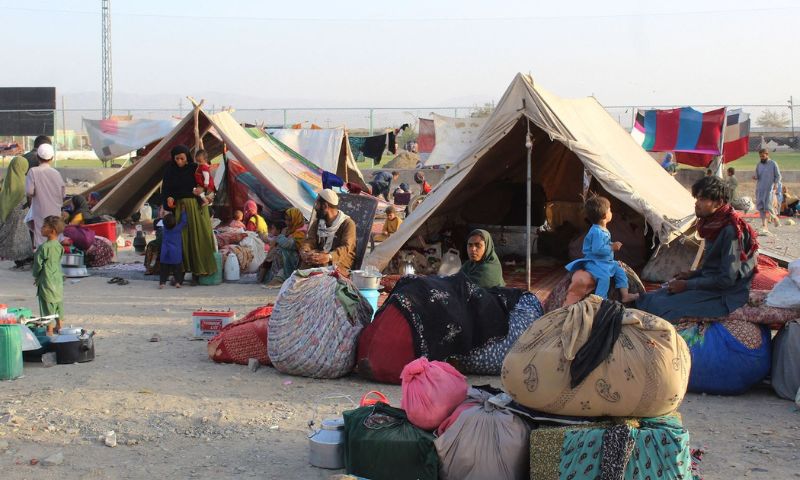NEW DELHI: India continually attempts to defame Pakistan by accusing it of mistreating Afghan refugees under the pretext of Pakistan’s decision to repatriate illegal Afghan immigrants, aiming to create divisions between the two countries. However, a closer look reveals that Afghan refugees in India are experiencing ill-treatment and are being denied the right to education and employment.
India’s focus on Pakistan’s repatriation of illegal Afghan immigrants may be seen as an effort to save face following the closure of the Afghan embassy in India, visa denials to Afghan students, and the rejection of an envoy appointed by the International Afghanistan Group (IAG). It is worth noting that India has hosted Afghan refugees since the 1980s, but official numbers tell a different story.
A Painful Reality About Afghan Refugees in India
In India, as per the Nations High Commissioner for Refugees (UNHCR) report, only 11,000 Afghan refugees are registered asylum-seekers but lacking official refugee status. However, the actual count of Afghan refugees in India stands at 19,338, not including an additional 13,000 Afghan students and military trainees who have remained in legal limbo since 2021, UNCHR data says.
In 2021, India introduced emergency visas for Afghan nationals. These visas, however, had a short six-month validity and came with the significant drawback of no right to education or employment in India.
It’s worth noting that out of the many Afghans fleeing after the Taliban seized Kabul, only 60,000 sought asylums in India. Surprisingly, by December 2021, India had only granted 200 e-visas, mostly to Hindus and Sikhs from Afghanistan.
Comparing India and Pakistan’s Treatment of Afghan Refugees
India handles Afghan refugees under the Foreigners Act of 1946 and the Citizenship Act of 1955, categorizing them as illegal migrants without differentiation between economic migrants and those fleeing war, violence, and persecution. This approach denies Afghan refugees living in India for the past 15 years access to social services or protection from refoulement.
Contrastingly, Pakistan, despite not being a signatory to the 1951 Refugee Convention, grants Afghan nationals the legal status of refugees, enabling them to access vital social services such as education and healthcare.
A 2023 report by the International Journal of Creative Research Thought (IJCRT) highlights the disparities faced by Afghan refugees in India. The findings reveal a stark contrast to their situation in Pakistan. In India, only about 25% of Afghan refugee children have the opportunity to attend school, and approximately 20% of Afghan refugees are employed, often in low-paying and insecure jobs.
The report revealed that over 50 percent of Afghan refugees in India lack access to essential healthcare services. Their living conditions are often unhygienic, marked by inadequate access to clean water and sanitation facilities. Discrimination and harassment are also prevalent, targeting Afghans based on factors such as their ethnicity, religion, and language.
Recently, the “Sayed Jamaluddin Afghan School” in Bhogal, which catered to over 200 Afghan refugee children, was forced to close due to insufficient funds and apparent indifference from Delhi, despite India’s claim to be a natural ally of Afghanistan.
Moreover, India’s revocation of Afghan student visas, despite thousands of Afghan students being dependent on its universities, further complicates the situation. These actions have raised concerns about India’s alignment with the ideals of an Islamic Emirates, as they contradict with its anti-Muslim policies at home.






















